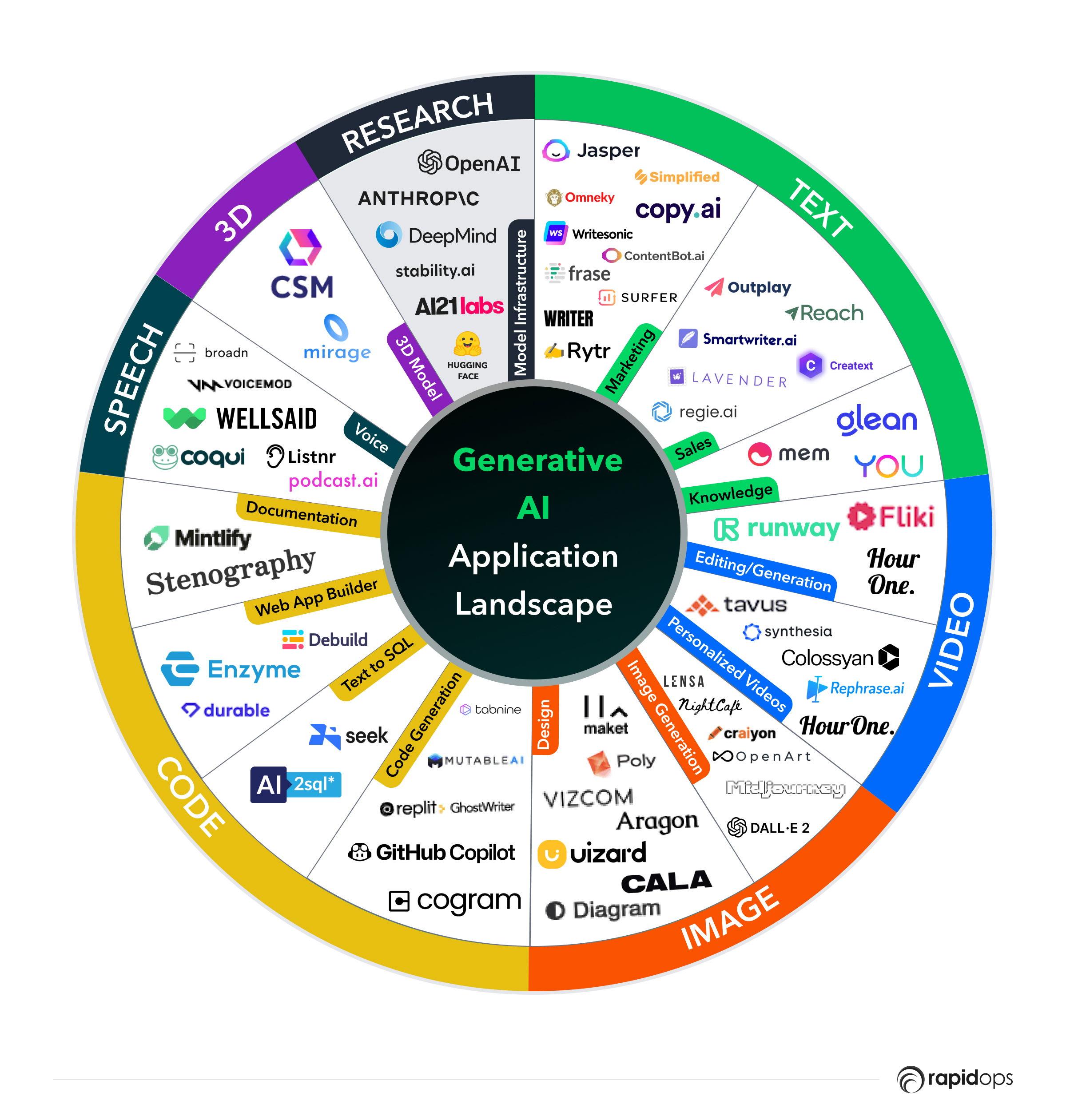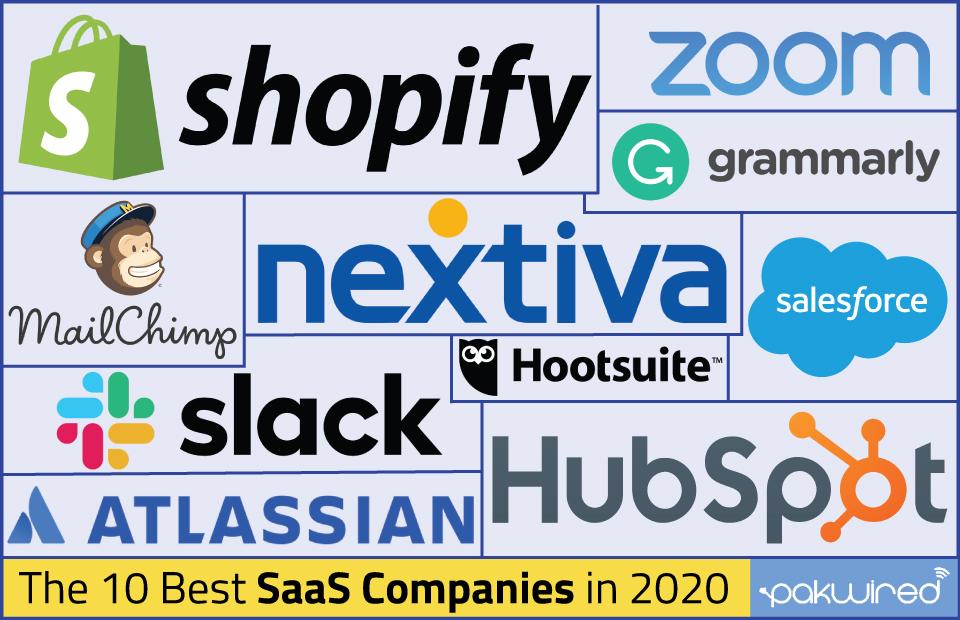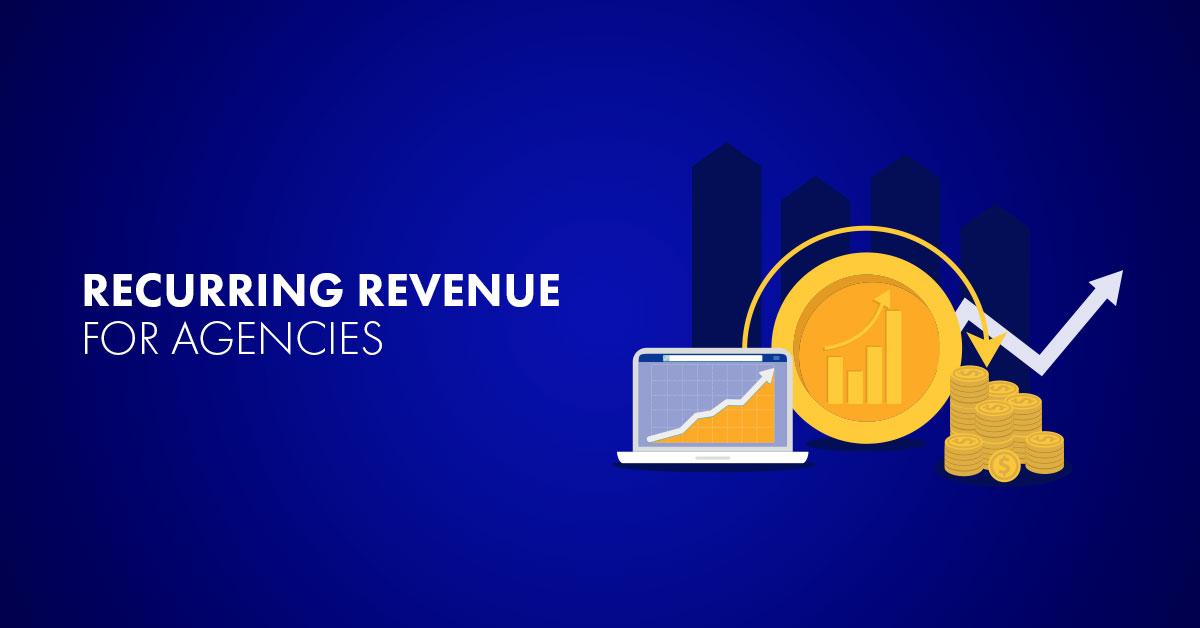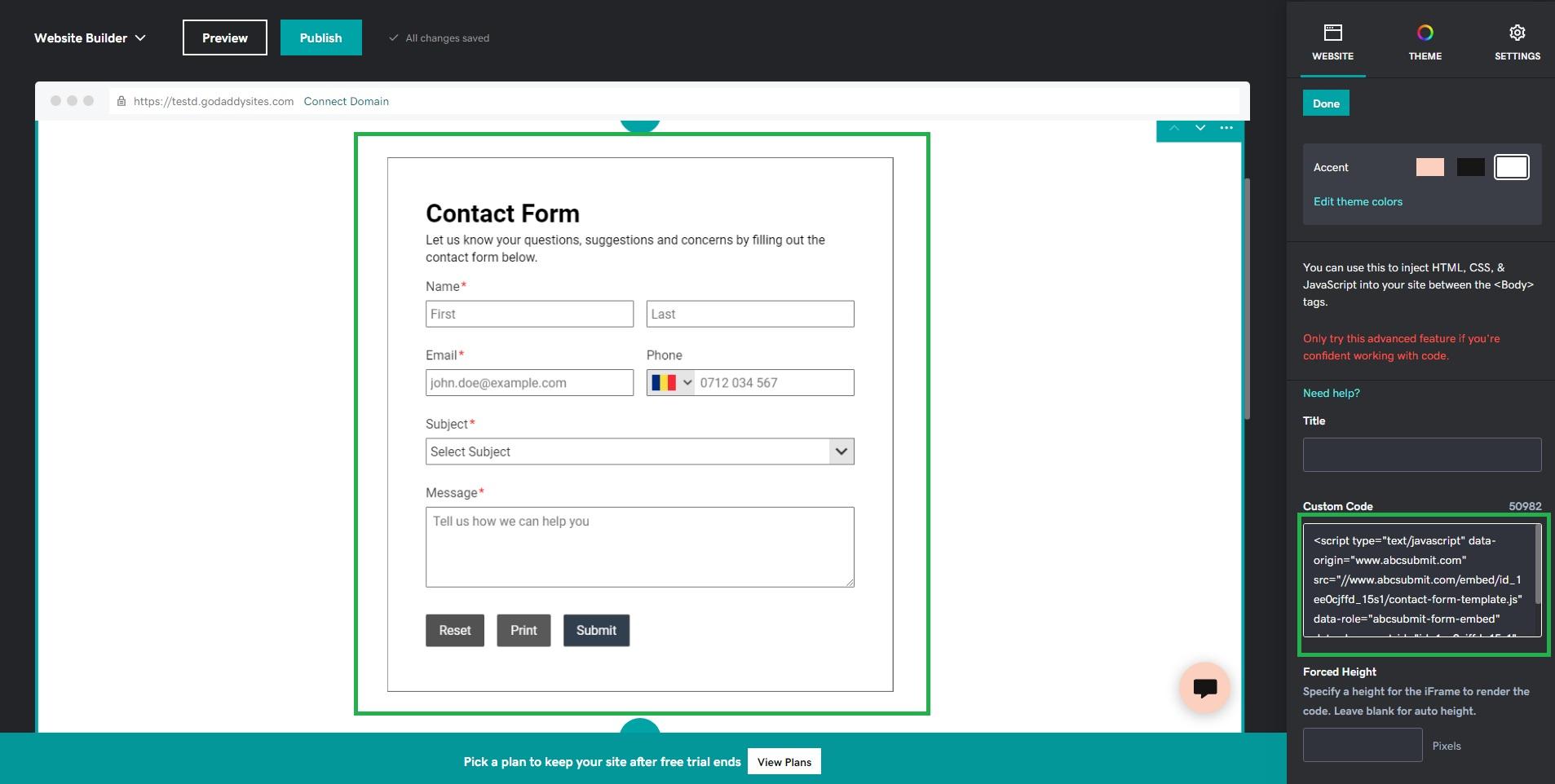
Are you a wholesaler looking to elevate your business in 2025? If so, you’re in for a treat! The world of eCommerce is evolving faster than ever, and with that comes a treasure trove of wholesale eCommerce platforms designed to help you streamline operations, boost sales, and connect with customers like never before. Whether you’re a seasoned pro or just starting out, choosing the right platform can make all the difference in how you manage inventory, process orders, and engage with buyers. In this article, we’ll explore the top nine wholesale eCommerce solutions that are set to revolutionize the way you do business this year. Get ready to uncover the perfect fit for your wholesale needs and watch your sales soar!
Understanding the Unique Needs of Wholesalers
Wholesalers operate in a unique landscape that requires tailored solutions to meet their distinct needs. Unlike standard retail operations, wholesalers often face challenges related to bulk ordering, pricing structures, and inventory management that necessitate a specialized approach to eCommerce. Understanding these complexities is key to selecting the right wholesale eCommerce platform.
One of the primary considerations for wholesalers is the need for flexible pricing models. Unlike retail, where prices are often fixed, wholesale transactions frequently involve tiered pricing based on order volume. A robust platform should facilitate this by allowing wholesalers to easily set up and manage pricing rules. This way, customers can receive instant quotes based on their purchase quantities, promoting larger order sizes and enhancing customer satisfaction.
Another crucial aspect is inventory management. Wholesalers must have real-time visibility into their stock levels to manage multiple customers effectively. Platforms that offer integrated inventory management systems empower wholesalers to track stock levels across various channels, ensuring they can fulfill orders promptly and avoid the pitfalls of overstocking or stockouts. This feature not only streamlines operations but also helps maintain strong supplier relationships.
Additionally, the user experience on the platform is vital. Wholesalers deal with a diverse customer base, from small retailers to large enterprises. A platform that supports a personalized shopping experience can significantly impact buyer behavior. Features like customer-specific catalogs, tailored recommendations, and easy navigation can enhance the shopping experience, making it simpler for customers to find what they need.
Moreover, the platform’s ability to integrate with existing systems cannot be overlooked. Wholesalers often use various software solutions for accounting, logistics, and customer relationship management. A platform that offers seamless integration capabilities ensures that wholesalers can synchronize their eCommerce operations with these systems, streamlining processes and reducing manual work.
Security is also a top priority for wholesalers, who handle sensitive transactional data. The right eCommerce platform should provide robust security measures, including SSL encryption, secure payment gateways, and compliance with data protection regulations. This reassurance is crucial for building trust with customers, especially in an age where data breaches are a growing concern.
To illustrate the essential features that wholesalers should look for in a platform, consider the following table:
| Feature | Importance |
|---|---|
| Flexible Pricing Models | Maximizes profit margins and attracts bulk buyers. |
| Inventory Management | Ensures timely order fulfillment and stock control. |
| Personalized User Experience | Enhances customer engagement and loyalty. |
| System Integration | Streamlines operations and reduces manual tasks. |
| Robust Security Features | Builds trust and protects sensitive data. |
Ultimately, selecting the right wholesale eCommerce platform is not just about functionality; it is about choosing a solution that aligns with the unique operational needs of wholesalers. By prioritizing the features that matter most, wholesalers can ensure they are equipped to thrive in a competitive market.
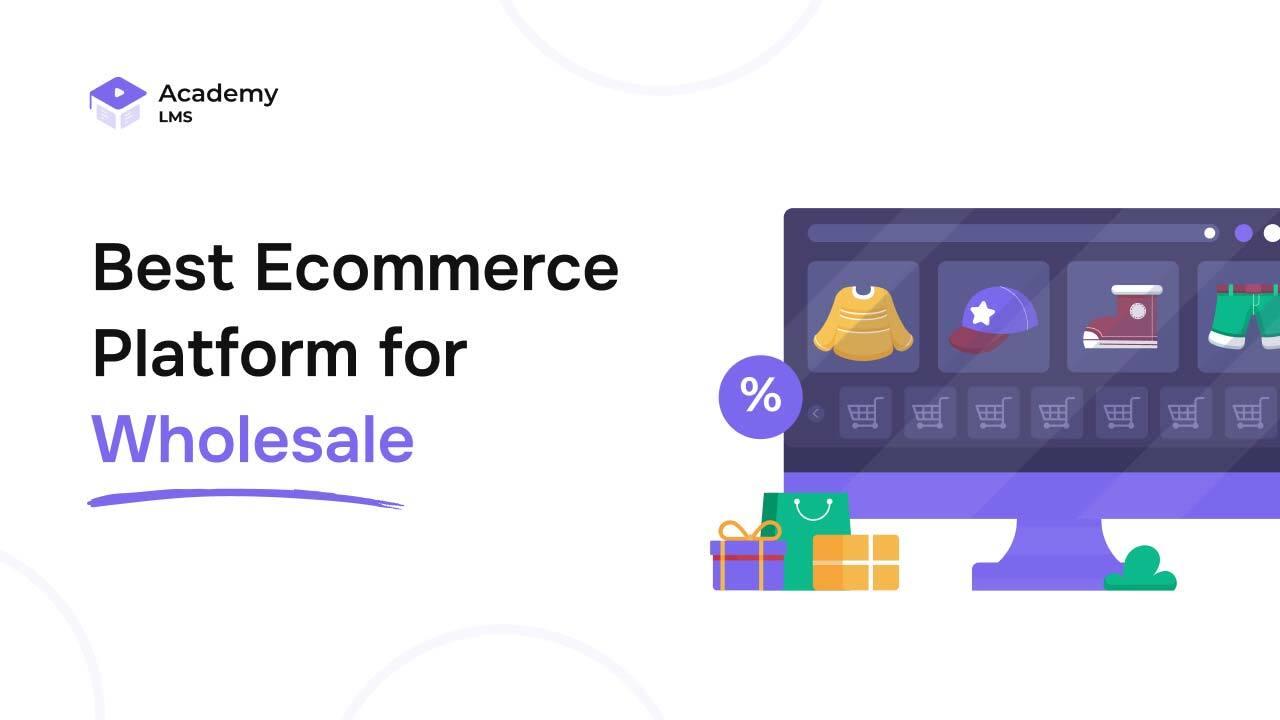
Key Features to Look for in a Wholesale Ecommerce Platform
When searching for the perfect wholesale ecommerce platform, it’s essential to consider a variety of features that can significantly enhance your business operations. A robust platform should cater not only to your current needs but also to future growth. Here are the key functionalities you should prioritize:
- Scalability: Your chosen platform should be able to grow alongside your business. Scalability features include the ability to handle increased inventory, a growing customer base, and more transactions without a hitch.
- User-friendly Interface: A clean and intuitive interface is crucial for both you and your customers. The easier it is to navigate, the more likely you are to retain clients and streamline operations.
- Multi-channel Integration: Look for a platform that integrates seamlessly with various sales channels, including marketplaces like Amazon and eBay, as well as social media platforms. This helps to expand your reach and enhance visibility.
- Customizable Pricing and Discounts: A flexible pricing system allows you to set different prices for various customer groups. This is particularly important in wholesale where bulk pricing and special discounts are common.
- Inventory Management: Effective inventory management tools help you track your stock levels, manage reordering, and prevent overselling. Having real-time updates can save you headaches down the road.
- Payment Gateway Options: Ensure that the platform supports multiple payment methods to cater to a diverse customer base. This can include credit cards, PayPal, and other payment solutions.
- Advanced Analytics: Data is key to making informed decisions. A good platform should provide detailed analytics and reporting features to help you understand sales trends, customer behavior, and inventory performance.
- Customer Support: Reliable customer support is invaluable, especially when you encounter technical challenges. Look for platforms that offer 24/7 support through various channels.
To illustrate the differences between some popular platforms, consider the following comparison table:
| Platform | Scalability | User-friendly | Multi-channel Support |
|---|---|---|---|
| Platform A | High | Yes | Yes |
| Platform B | Medium | Yes | No |
| Platform C | High | No | Yes |
| Platform D | Low | Yes | No |
By weighing these features against your specific business needs and comparing different platforms, you’ll be better equipped to choose a solution that not only meets your current demands but also sets the stage for your future growth. Remember, the right wholesale ecommerce platform can be a game-changer for your business.
Top Wholesale Ecommerce Platforms: A Comprehensive Overview
In the rapidly evolving world of wholesale ecommerce, selecting the right platform can significantly influence your business trajectory. With numerous options available, it’s crucial to find a solution that not only meets your needs but also scales with your growth. Below is a breakdown of some of the top wholesale ecommerce platforms that are poised to lead the market in 2025.
Shopify Plus stands out for its user-friendly interface and robust features tailored for high-volume wholesale operations. With customizable storefronts, you can create a unique shopping experience for your wholesale customers. Its scalability makes it a top choice for businesses looking to expand without the hassle of migrating to a new platform.
Another top contender is BigCommerce, which offers advanced SEO capabilities and multi-channel selling features. This platform supports integration with various marketplaces, allowing wholesalers to manage their inventory seamlessly across platforms like Amazon and eBay. Its powerful analytics tools also provide valuable insights to drive your business decisions.
WooCommerce is ideal for those already familiar with WordPress. Its flexible nature enables sellers to customize their online stores extensively. With numerous plugins available, you can enhance your store’s functionality, from payment processing to inventory management. Plus, its open-source framework means you have complete control over your ecommerce experience.
For wholesalers focused on B2B transactions, Magento Commerce offers robust features such as customer segmentation and tiered pricing. This platform empowers businesses to create tailored experiences for different customer groups, making it easier to manage complex wholesale relationships.
Let’s not overlook TradeGecko, which simplifies inventory management and order fulfillment. Its user-friendly dashboard provides real-time insights into stock levels, sales trends, and customer interactions, helping wholesalers make informed decisions quickly.
Consider also Odoo, an all-in-one business management solution that integrates ecommerce with other critical business functions. Odoo’s versatility allows wholesalers to manage everything from product listings to customer relationships, all in one place. Plus, its pricing model is flexible, making it accessible for small to large enterprises alike.
Each of these platforms offers unique features designed to cater specifically to the needs of wholesalers. When choosing the right solution for your business, consider factors like scalability, ease of use, and available integrations. Here’s a quick comparison table to help you visualize the key features:
| Platform | Key Features | Best For |
|---|---|---|
| Shopify Plus | Customizable storefronts, scalable | Growing businesses |
| BigCommerce | Advanced SEO, multi-channel selling | Marketplaces management |
| WooCommerce | Highly customizable, plugins | WordPress users |
| Magento Commerce | Customer segmentation, tiered pricing | B2B focused |
| TradeGecko | Inventory management, order fulfillment | Efficient operations |
| Odoo | All-in-one solution, flexible pricing | Small to large businesses |
Ultimately, the best wholesale ecommerce platform for you will depend on your specific business needs, the scale of your operations, and your long-term goals. By carefully evaluating these platforms, you can set your business up for success in the competitive world of wholesale ecommerce.
How to Choose the Right Platform for Your Business
Choosing the right platform for your wholesale business can feel overwhelming, but breaking it down into key considerations can simplify the process. Here’s what to keep in mind:
- Scalability: Ensure the platform can grow with your business. Look for features that allow easy expansion, such as additional product lines and user accounts.
- Customization: Your business model is unique, and your platform should reflect that. Opt for solutions that offer tailored templates and flexible design options.
- User Experience: A platform that is easy to navigate not only benefits your team but also enhances the experience for your customers. Check for intuitive interfaces and streamlined processes.
- Integration Capabilities: Consider how well the platform integrates with your existing systems, such as inventory management, CRM, and accounting software. Seamless integration can save time and reduce errors.
- Payment Options: Offering various payment methods can increase conversion rates. Look for a platform that supports multiple gateways and is secure for transactions.
- Customer Support: Reliable customer service is a must. Investigate the support options available, including live chat, phone support, and extensive documentation.
Another critical factor is the cost. Analyze the pricing structure, including setup fees, monthly subscriptions, and transaction fees. A low initial cost might seem attractive, but hidden fees can add up over time. It’s essential to calculate the long-term costs to avoid unexpected surprises.
To help you visualize your options, here’s a simple comparison of popular ecommerce platforms tailored for wholesalers:
| Platform | Features | Starting Price |
|---|---|---|
| Shopify Plus | Scalability, API access, customizable checkout | $2,000/month |
| BigCommerce | Multi-channel selling, flexible API, no transaction fees | $299/month |
| Magento | Open source, extensive customization, powerful SEO tools | Free (self-hosted) |
| WooCommerce | WordPress integration, customizable plugins, community support | Free (basic features) |
Ultimately, the right platform should align with your business goals and customer expectations. Take time to test a few platforms through demos or free trials, and gather feedback from your team. This hands-on experience can provide invaluable insights that might not be apparent during initial research.
Remember, investing in the right wholesale ecommerce platform is not just about meeting current needs but also about future-proofing your business. Consider where you want to be in the next few years and choose a solution that empowers you to reach those goals.
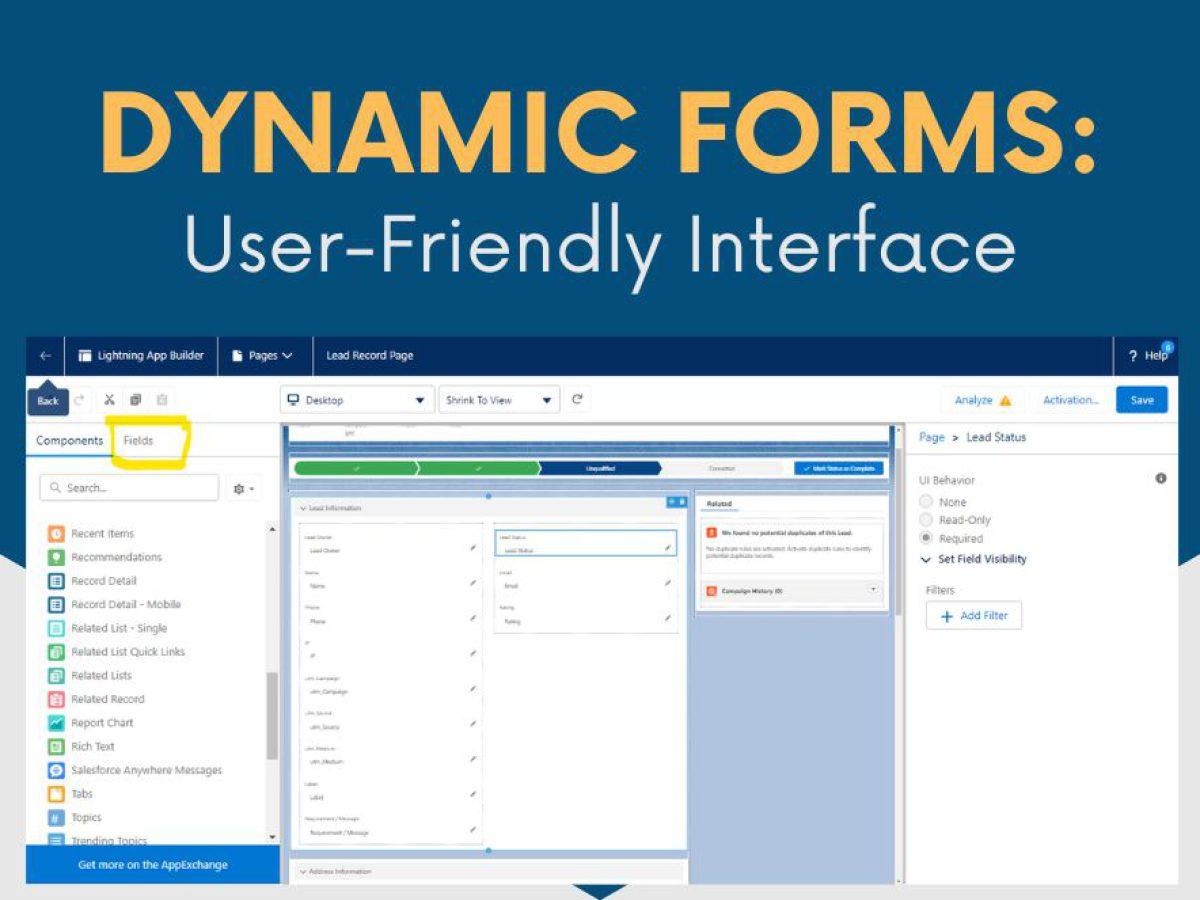
Ease of Use: Why User-Friendly Interfaces Matter
In the fast-paced world of wholesale ecommerce, the user experience can make or break your business. A user-friendly interface is not just a luxury; it’s a necessity for both wholesalers and their clients. When platforms are intuitive and easy to navigate, they significantly reduce the learning curve for new users, enabling them to engage with the system more effectively from day one.
Consider the impact of a streamlined design. A well-organized layout allows users to quickly find what they need, be it product listings, order management, or customer service support. This efficiency translates directly into time saved, which can be redirected toward scaling your business and enhancing customer relationships. A chaotic or overly complicated interface, on the other hand, can lead to frustration, abandoned carts, and ultimately lost sales.
Moreover, a user-friendly interface fosters customer loyalty. When clients can easily navigate your platform, they’re more likely to return. A positive user experience encourages repeat business and enhances your brand reputation. In a market where competition is fierce, ensuring that your platform is straightforward and pleasant to use can set you apart from the crowd.
Responsive design is another critical aspect of usability. In 2025, many wholesalers will still rely on mobile devices to manage their businesses on the go. A platform that offers a consistent experience across devices not only meets the needs of mobile users but also ensures that you’re accessible anytime, anywhere. This flexibility can be a game-changer for busy professionals who require quick access to their inventory and sales data.
Let’s break down some key elements that contribute to a user-friendly interface:
- Intuitive Navigation: Menus and categories should be logically organized, allowing users to find information swiftly.
- Search Functionality: An effective search bar that auto-suggests products can save users valuable time.
- Clear Call-to-Actions: Buttons for important actions, such as ‘Add to Cart’ or ‘Contact Support,’ should be easily identifiable.
- Visual Aids: Incorporating images, icons, and videos can enhance understanding and engagement.
- Consistent Design Elements: Uniformity in fonts, colors, and button styles promotes a cohesive look, making navigation easier.
To highlight the importance of ease of use, let’s look at a comparison table of two hypothetical platforms based on user experience metrics:
| Feature | Platform A | Platform B |
|---|---|---|
| Intuitive Navigation | ⭐⭐⭐⭐⭐ | ⭐⭐⭐⭐ |
| Mobile Responsiveness | ⭐⭐⭐⭐⭐ | ⭐⭐⭐ |
| Search Function | ⭐⭐⭐⭐ | ⭐⭐⭐⭐⭐ |
| Customer Support Accessibility | ⭐⭐⭐⭐⭐ | ⭐⭐⭐ |
As this table illustrates, even small differences in usability can have significant implications for user satisfaction. In wholesale ecommerce, where time is often of the essence, platforms that prioritize ease of use are likely to see higher engagement and conversion rates.
when evaluating wholesale ecommerce platforms, never underestimate the power of a user-friendly interface. It’s not just about aesthetics; it’s about creating an environment where your customers feel comfortable and empowered to make purchases, manage their accounts, and connect with your business. Choose wisely, and you’ll pave the way for long-term success.
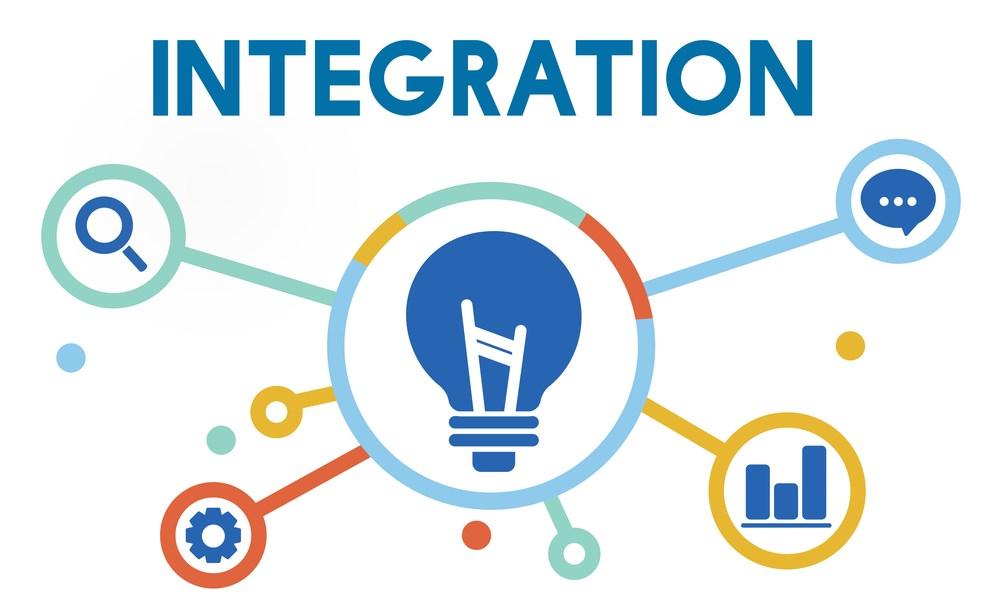
Integrations That Make Your Life Easier
In the fast-paced world of wholesale ecommerce, the right integrations can transform your business operations, making them smoother and more efficient. Here are some essential integrations that not only enhance functionality but also boost productivity and streamline workflows.
- Inventory Management Systems: Seamlessly connect your ecommerce platform with inventory management software to keep track of stock levels, manage reorders, and reduce the risk of overselling. This integration provides real-time updates, ensuring you never miss a sale due to stock issues.
- Customer Relationship Management (CRM): Integrating a CRM system helps you manage customer interactions, track leads, and analyze customer data. This way, you can tailor your marketing strategies to meet the specific needs of your wholesale clients.
- Accounting Software: Automate your financial processes by linking your ecommerce platform with accounting tools like QuickBooks or Xero. This integration simplifies invoicing, expense tracking, and financial reporting, allowing you to focus on scaling your business.
- Email Marketing Tools: Integrate your ecommerce platform with email marketing services like Mailchimp to create targeted campaigns and engage with customers effectively. This connection helps you automate follow-ups and nurture leads, increasing your chances of closing sales.
- Shipping and Fulfillment Services: Streamlining your shipping process is crucial for customer satisfaction. By integrating with logistics partners, you can automate shipping labels, track orders, and manage returns swiftly, ensuring a seamless experience for your buyers.
Additionally, some ecommerce platforms offer built-in integrations that cater specifically to wholesalers, enhancing your ability to manage bulk orders efficiently. For example:
| Integration | Benefits |
|---|---|
| Shopify Plus | Customizable options for high-volume sales, easy API access. |
| TradeGecko | Inventory and order management tailored for wholesalers. |
| WooCommerce | Robust plugins for payment gateways and shipping solutions. |
Integrating these tools not only saves time but also enhances the overall experience for both you and your customers. The more streamlined your processes are, the better you can serve your wholesale clientele, maintaining strong relationships and fostering loyalty.
As you explore your options, consider integrations that offer flexibility and scalability, enabling your business to grow without limits. The right connections will empower you to focus on what truly matters—driving sales and expanding your market reach.

Cost Considerations: Finding Value in Wholesale Solutions
When venturing into the world of wholesale ecommerce, understanding the financial implications is crucial for sustained success. While the allure of bulk purchasing is evident, navigating the landscape of wholesale solutions requires a clear comprehension of costs involved and the potential for long-term savings. Here’s a breakdown to help you find true value in wholesale solutions.
1. Initial Investment vs. Long-Term Gains
Many ecommerce platforms come with upfront costs, such as setup fees or subscription charges. However, evaluating these initial investments should be viewed through the lens of long-term profitability. A platform that may seem pricey at first could offer features that save time and resources down the line, such as:
- Automated inventory management
- Integrated shipping solutions
- Advanced analytics tools
2. Transaction Fees and Hidden Costs
While some platforms advertise low monthly fees, be wary of transaction costs that can quickly add up. Scrutinize the pricing models to uncover any hidden fees that might affect your bottom line. Here’s a quick overview of what to look out for:
| Fee Type | Description |
|---|---|
| Transaction Fees | Charges per sale made through the platform. |
| Payment Processing Fees | Costs associated with processing customer payments. |
| Monthly Subscription Fees | Recurring charges for platform use. |
| Additional App Integrations | Costs for any extra plugins or features you want to add. |
3. Scalability and Flexibility
As your business grows, so will your needs. Investing in a platform that offers scalability ensures you won’t have to switch systems as your order volume increases. This not only saves you from further initial costs but also minimizes downtime associated with platform transitions. Consider platforms that allow:
- Increased product listings
- Higher traffic handling
- Customizable features for unique needs
4. Support and Training
Quality customer support is a hidden gem in the wholesale ecommerce landscape. Some platforms offer extensive training materials and dedicated support teams at no extra cost, which can greatly reduce the learning curve for your team. Investing in a solution that provides:
- 24/7 customer service
- Online tutorials and webinars
- Dedicated account managers
could prove invaluable as you navigate the complexities of wholesale ecommerce.
5. Evaluate ROI Periodically
regularly assessing your return on investment (ROI) from your wholesale platform is essential. Consider factors such as increased sales volume, reduced operational costs, and enhanced customer satisfaction. Keeping a pulse on these metrics will help you adjust your strategy and choose the right time to scale or switch platforms if necessary.

Scaling Your Business: Platforms That Grow with You
When it comes to scaling your wholesale business, choosing the right ecommerce platform is crucial. You need a solution that not only meets your current needs but also grows with you. A scalable platform can help you streamline operations, manage inventory more efficiently, and enhance customer experience. Let’s dive into some platforms that stand out in 2025 for wholesalers looking to expand their online presence.
1. WooCommerce
WooCommerce is a versatile plugin for WordPress that transforms your site into a full-fledged ecommerce store. Its extensive range of plugins means you can add features as your business grows. You can easily manage bulk orders, offer discounts, and create a seamless B2B experience.
2. Shopify Plus
If you’re aiming for high-volume sales, Shopify Plus is designed for you. Catering to larger businesses, it offers advanced features like automated workflows and customizable checkout processes. Plus, with its robust analytics, you can track growth and make informed decisions.
3. BigCommerce
This platform is ideal for wholesalers who want built-in features that support complex pricing structures and bulk discounts. BigCommerce’s scalability allows you to handle thousands of SKUs while maintaining excellent site performance, ensuring a smooth shopping experience for your customers.
4. Magento Commerce
For those who need complete control over their ecommerce site, Magento Commerce is the go-to option. Its customizable nature means you can tailor every aspect to fit your business model. With features like robust inventory management and multi-store capabilities, it’s perfect for growing wholesalers.
5. Squarespace
Though often recognized for its design prowess, Squarespace is also a strong contender for wholesalers looking for a visually stunning platform. It offers ecommerce functionalities that are easy to manage, and its drag-and-drop interface makes it user-friendly, even for those with limited technical skills.
6. Wix
Wix’s ecommerce capabilities have come a long way, making it a solid choice for wholesalers who want an easy-to-use interface. With Wix, you can create a stunning online store without needing extensive coding knowledge. The platform also offers various apps to enhance functionality as you expand.
7. PrestaShop
PrestaShop is an open-source solution that is perfect for tech-savvy entrepreneurs. It provides the flexibility to customize your store extensively. Additionally, it has a vibrant community and marketplace for modules, so you can add features and grow without limits.
8. OpenCart
This user-friendly platform is great for small to medium-sized wholesalers. OpenCart allows for easy product management and has a wide range of extensions. Its multi-store feature is particularly useful for businesses looking to diversify their offerings.
9. Odoo
Odoo is more than just an ecommerce platform; it’s a complete business management suite. It includes CRM, inventory management, and accounting, allowing wholesalers to manage all aspects of their business from one place. This integration can save time and make scaling much simpler.
| Platform | Best For | Key Feature |
|---|---|---|
| WooCommerce | WordPress Users | Extensive Plugin Options |
| Shopify Plus | High-Volume Sales | Automated Workflows |
| BigCommerce | Complex Pricing Structures | Robust Performance |
| Magento Commerce | Custom Solutions | Multi-Store Capabilities |
| Squarespace | Design-Focused Stores | User-Friendly Interface |
| Wix | Beginner-Friendly | Drag-and-Drop Builder |
| PrestaShop | Customizable Solutions | Open-Source Flexibility |
| OpenCart | Small to Medium Wholesalers | Multi-Store Feature |
| Odoo | Comprehensive Management | Integrated Business Apps |
Choosing the right platform is about more than just features; it’s about finding a partner in your growth journey. Look for solutions that offer the ability to scale, flexibility in design, and robust support. Investing time in evaluating these platforms can pay off significantly as you expand your wholesale business in the competitive ecommerce landscape of 2025.

Best Practices for Setting Up Your Wholesale Store
Creating a successful wholesale store is not just about having great products; it’s about establishing a solid foundation that will attract and retain customers. Here are some essential practices to ensure your wholesale store stands out in the bustling eCommerce landscape.
Understand Your Target Market: Before you even start setting up your store, know who your ideal customers are. Develop detailed buyer personas that include:
- Demographics
- Buying behavior
- Industry needs
- Preferred communication channels
Having a clear picture of your target audience allows you to tailor your marketing strategies and product offerings effectively.
Choose the Right Wholesale eCommerce Platform: Not all platforms are created equal. Look for features that cater specifically to wholesalers, such as:
- Bulk order capabilities
- Custom pricing options
- Inventory management tools
- Multi-user account access
Evaluate various platforms to find one that aligns with your business needs and growth plans.
Optimize Your Website for B2B Transactions: A clean, professional design is crucial. Ensure that your website is:
- Fast-loading
- Mobile-friendly
- Easy to navigate
- Secure for transactions
Investing in user experience will reduce bounce rates and encourage repeat visits.
Provide Detailed Product Information: Wholesalers often buy in bulk, making it essential to provide comprehensive product descriptions. Include:
- Specifications
- Pricing tiers based on quantity
- Shipping details
- Return policies
Clear information helps buyers make informed decisions, leading to higher conversion rates.
Implement a Robust Customer Support System: Excellent customer service can differentiate your wholesale store from competitors. Consider:
- Live chat options
- Comprehensive FAQs
- Responsive email support
- Dedicated account managers for top clients
Being available to assist customers builds trust and fosters long-term relationships.
Utilize Analytics and Feedback: Regularly analyze your website’s performance and gather customer feedback. Use tools to track:
- Visitor behavior
- Sales trends
- Customer satisfaction levels
This data will guide your business decisions, allowing you to adapt and optimize your offerings continuously.
| Feature | Importance |
|---|---|
| Bulk Order Capabilities | Essential for high-volume buyers |
| Custom Pricing Options | Attracts diverse customer segments |
| Inventory Management Tools | Helps prevent stockouts or overstock |
| Secure Transactions | Builds trust with customers |
Incorporating these best practices will not only streamline your operations but also enhance the customer experience, making your wholesale store a go-to destination for businesses looking for reliable suppliers.
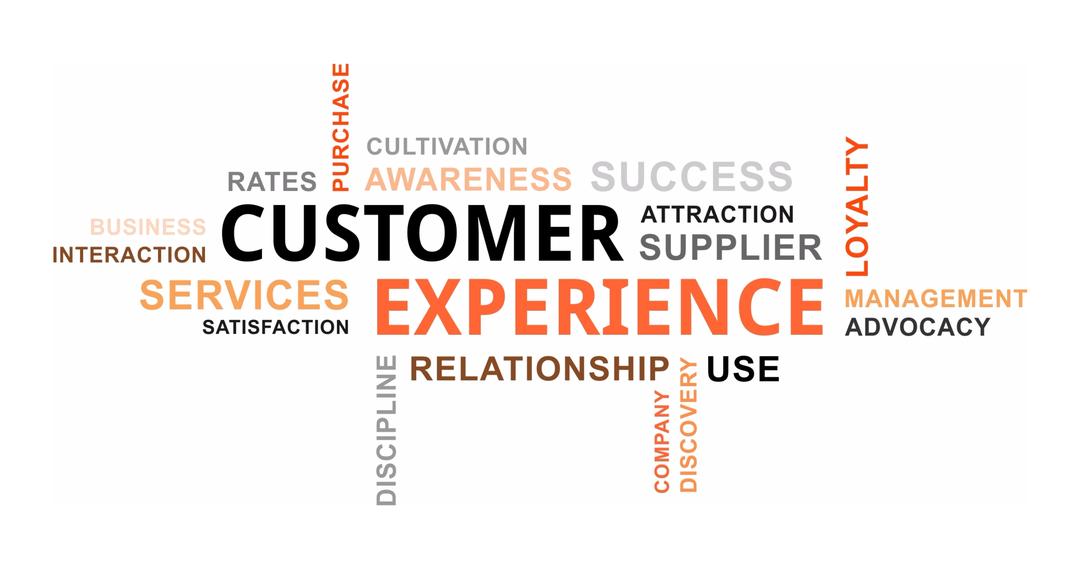
Enhancing Customer Experience in Wholesale Ecommerce
In the competitive landscape of wholesale ecommerce, delivering a superior customer experience is paramount. The best wholesale ecommerce platforms in 2025 are designed to cater to the unique needs of wholesalers while ensuring that buyers have a seamless shopping journey. Here’s how these platforms can enhance customer experience:
- User-Friendly Interface: A well-designed interface simplifies navigation, allowing customers to find products effortlessly. Intuitive design reduces frustration and keeps users engaged.
- Personalized Shopping Experience: Utilizing data analytics, platforms can offer personalized recommendations based on previous purchases, browsing history, and preferences. This tailored approach increases conversion rates and customer satisfaction.
- Mobile Optimization: With an increasing number of users shopping on mobile devices, having a mobile-responsive site is crucial. Optimized mobile experiences enhance accessibility and convenience, making it easy for customers to place orders anytime, anywhere.
- Efficient Ordering Process: Streamlining the ordering process with features like bulk ordering, quick reorder buttons, and saved carts can significantly reduce the time customers spend on the platform.
- Real-Time Inventory Management: Transparency in inventory levels helps customers make informed purchasing decisions. Real-time updates on stock availability prevent disappointment and build trust with buyers.
Moreover, integrating advanced customer support features can further elevate the overall experience:
- 24/7 Live Chat Support: Implementing real-time chat support allows customers to receive immediate assistance, resolving queries before they lead to abandoned carts.
- Comprehensive FAQs and Resources: Providing well-organized FAQs, guides, and tutorials empowers customers to find answers independently, enhancing their confidence in using the platform.
Another essential aspect is the payment and checkout process:
| Payment Method | Benefits |
|---|---|
| Credit/Debit Cards | Familiar and widely accepted, ensuring fast transactions. |
| Digital Wallets | Convenient and secure, allowing for quicker checkouts. |
| Bank Transfers | Ideal for larger orders, often involving lower fees. |
| Buy Now, Pay Later | Increases purchasing power for customers, enhancing sales opportunities. |
establishing a loyalty program can foster long-term relationships with customers. Offering rewards, discounts, or exclusive access to new products not only incentivizes repeat purchases but also makes customers feel valued. When they see that their loyalty is recognized, they are more likely to continue doing business with you.
In essence, involves a multi-faceted approach. By prioritizing user experience, personalized interactions, robust support systems, streamlined payment processes, and loyalty initiatives, wholesalers can significantly boost customer satisfaction and retention. As we move further into 2025, investing in these enhancements will not only set your business apart but also drive sustainable growth in a rapidly evolving marketplace.
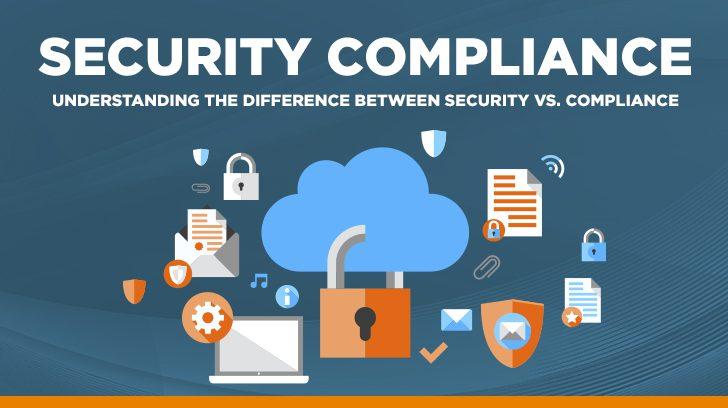
Security and Compliance: Protecting Your Business
In the fast-paced world of wholesale eCommerce, ensuring that your business is secure and compliant is paramount. With the rise of digital transactions, the potential risks associated with data breaches and non-compliance are also increasing. As a wholesaler, you must prioritize security measures that protect not only your sensitive business information but also the data of your clients and partners.
One of the first steps towards securing your platform is to choose a wholesale eCommerce solution that offers robust security features. Look for platforms that include:
- SSL Encryption: This is essential for safeguarding data transferred between your website and customers.
- Two-Factor Authentication: An extra layer of security that requires not just a password but also a second form of identification.
- Regular Security Audits: Platforms that conduct frequent security assessments can identify vulnerabilities and address them promptly.
- Data Backup Solutions: Ensure your platform provides automated backup options to recover lost data in case of an incident.
Compliance is another critical aspect that cannot be overlooked. Adhering to regulations such as GDPR, CCPA, and PCI DSS helps you build trust with your customers. Here are some compliance practices to consider:
- Transparent Data Policies: Clearly inform customers about how their data will be used and stored.
- Consent Management: Implement systems that allow customers to give explicit consent for data collection.
- Regular Compliance Training: Ensure your team is educated on privacy laws and best practices to minimize risks.
Additionally, you should regularly review your eCommerce platform’s compliance features. This includes verifying that your payment processors are PCI DSS compliant, as this protects sensitive credit card information during transactions. Choosing a platform with built-in compliance tools can save you time and money, allowing you to focus on growing your business.
Implementing a security-first mindset within your organization can significantly mitigate risks. Encourage a culture of cybersecurity awareness by:
- Conducting Training Sessions: Equip your staff with knowledge on identifying potential threats such as phishing scams.
- Establishing Clear Security Policies: Outline procedures for handling sensitive data and responding to security incidents.
- Utilizing Secure Payment Gateways: Only use gateways that adhere to the highest security standards.
investing in a wholesale eCommerce platform with strong security and compliance features is crucial for protecting your business. By adopting a proactive approach to safeguarding your data, you not only protect your assets but also enhance the trust your customers place in your brand. Remember, in today’s digital landscape, security isn’t just an option; it’s a necessity.
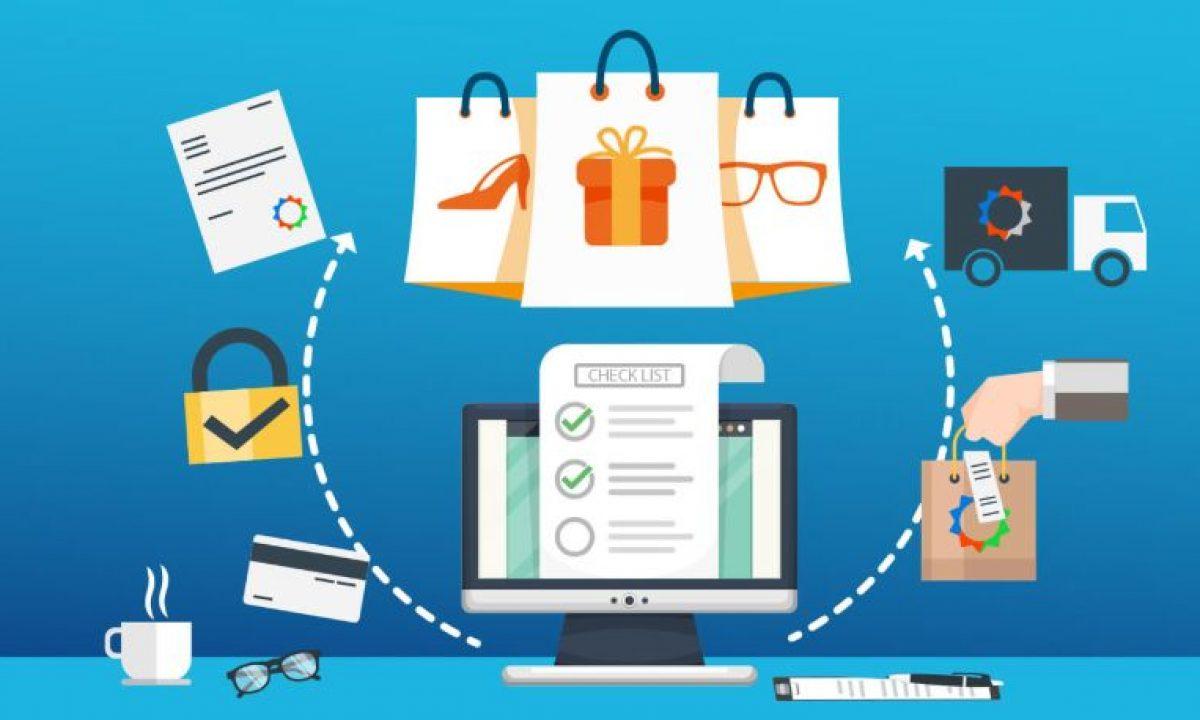
The Future of Wholesale Ecommerce: Trends to Watch
As we look ahead to 2025, the wholesale ecommerce landscape is evolving rapidly, driven by technological advancements and shifting market demands. Wholesalers must stay ahead of the curve by adapting to emerging trends that will reshape their business strategies. Here are some of the key trends to keep an eye on:
- Personalization and Customer Experience: In an increasingly competitive market, providing a tailored shopping experience is paramount. Wholesalers will need to leverage data analytics to understand buyer behavior and preferences, offering personalized product recommendations and targeted promotions.
- Mobile Commerce: With the rise of mobile shopping, having a mobile-friendly platform is no longer optional. Wholesale businesses must ensure their websites and applications are optimized for mobile devices to capture this growing segment of buyers who prefer convenience on-the-go.
- Automation and AI: Automation tools and artificial intelligence are set to revolutionize wholesale operations. From inventory management to customer service, AI can help streamline processes, reduce errors, and enhance decision-making, allowing wholesalers to focus on strategic growth.
- Multi-Channel Selling: Diversifying sales channels is essential in today’s ecommerce environment. Wholesalers should explore platforms such as Amazon, eBay, and social media marketplaces to reach a broader audience and increase their sales opportunities.
- Sustainability Practices: As consumers become more eco-conscious, wholesalers need to adopt sustainable practices. This includes sourcing ethically produced goods, reducing packaging waste, and enhancing supply chain transparency, which can also serve as a differentiator in the marketplace.
To further illustrate these trends, consider the following table that outlines the potential impact of each trend on wholesale ecommerce businesses:
| Trend | Impact on Business | Potential Outcome |
|---|---|---|
| Personalization | Improved customer engagement | Higher conversion rates |
| Mobile Commerce | Increased accessibility | Enhanced customer satisfaction |
| Automation | Optimized operations | Cost savings and efficiency |
| Multi-Channel Selling | Broader market reach | Diverse revenue streams |
| Sustainability | Brand loyalty and trust | Competitive advantage |
Investing in the right wholesale ecommerce platform can significantly impact how effectively wholesalers adapt to these trends. Choosing solutions that facilitate integration with various channels, support mobile commerce, and offer robust data analytics capabilities will be essential. Wholesalers who embrace these innovations are not just preparing for the future—they are setting the stage for sustained growth and success in an ever-evolving market.
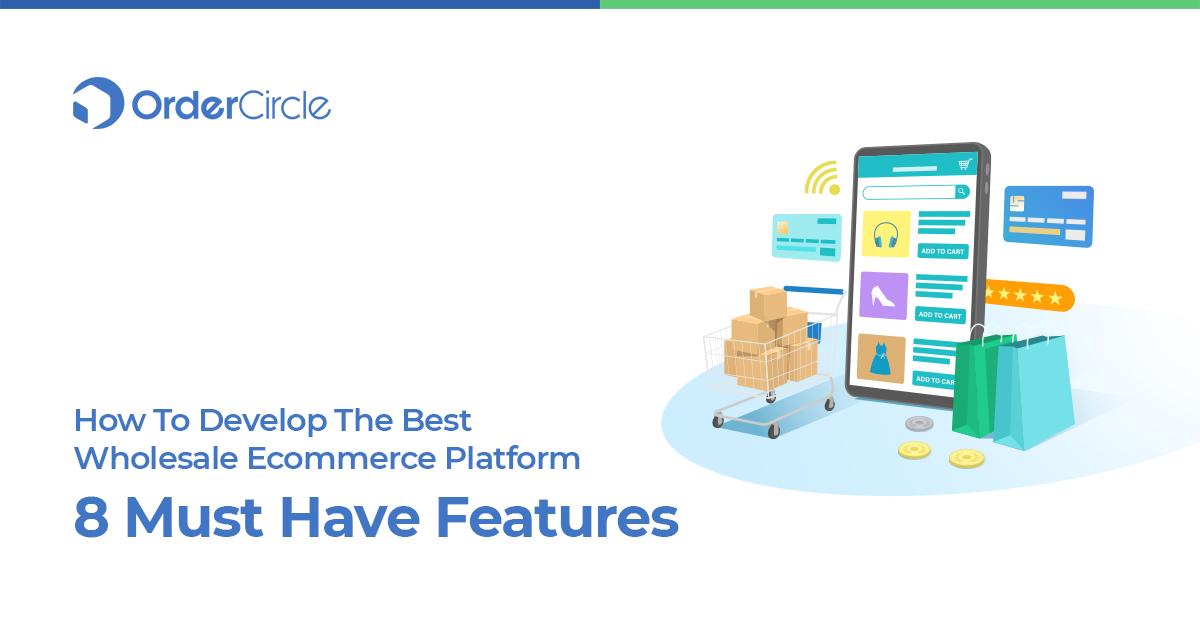
Success Stories: Wholesalers Thriving on These Platforms
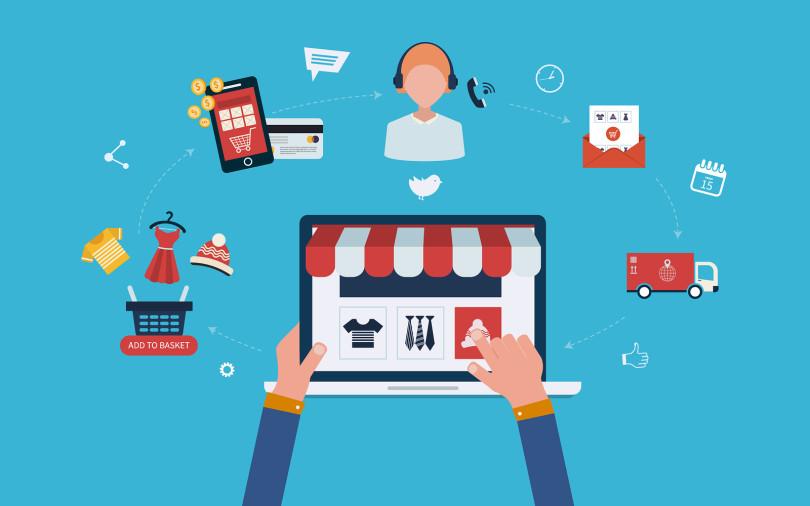
Final Thoughts: Choosing the Best Wholesale Ecommerce Solution for 2025
As we look toward 2025, selecting the right wholesale ecommerce solution becomes increasingly critical for businesses aiming to thrive in a competitive marketplace. The right platform can significantly influence operational efficiency, customer satisfaction, and overall profitability. Here are some key considerations to keep in mind when making your choice:
- Scalability: Ensure the platform can grow with your business. As your inventory and customer base expand, your ecommerce solution should seamlessly accommodate increased demands.
- Integration Capabilities: Look for a platform that can integrate smoothly with your existing tools, such as ERP systems, CRM software, and other essential applications. This will streamline your operations and enhance productivity.
- User Experience: A user-friendly interface is vital. Both your team and customers should find the platform intuitive. A smooth user experience can lead to increased sales and customer loyalty.
- Security Features: In an age of frequent data breaches, robust security measures should be non-negotiable. Choose a solution that prioritizes data protection and compliance with industry regulations.
- Support and Resources: Evaluate the level of customer support offered. Access to comprehensive documentation, tutorials, and responsive customer service can make a significant difference in your experience.
Additionally, consider the importance of cost-effectiveness. While it may be tempting to choose the lowest priced option, it’s essential to analyze the long-term value. A more expensive platform might provide better features and support that could ultimately save you money and time in the future.
Don’t forget to explore customer reviews and case studies. Gaining insights from other wholesalers who have already used the solution can provide valuable context. Look for platforms with proven success in your industry, as they will likely better understand your unique challenges and needs.
| Platform | Key Feature | Pros | Cons |
|---|---|---|---|
| Platform A | Customizable Templates | Flexible design options | Learning curve |
| Platform B | Advanced Analytics | Data-driven insights | Higher cost |
| Platform C | Multi-Channel Selling | Wider market reach | Complex setup |
Ultimately, the best wholesale ecommerce solution for your business in 2025 will depend on your specific needs and goals. Take the time to evaluate your options, consider your budget, and prioritize features that will serve your business in the long run. By investing wisely in the right platform, you will set your business up for success in the coming years.
Frequently Asked Questions (FAQ)
Q&A for “Best Wholesale Ecommerce Platform: 9 Solutions for Wholesalers in 2025”
Q: Why is choosing the right wholesale ecommerce platform so important for wholesalers?
A: Choosing the right platform is crucial because it directly impacts your business operations, customer experience, and ultimately, your bottom line. A good wholesale ecommerce platform can streamline your processes, enhance customer relationships, and provide the tools you need to scale your business effectively. In today’s competitive market, having a robust online presence isn’t just an option—it’s a necessity!
Q: What are some key features to look for in a wholesale ecommerce platform?
A: Great question! You’ll want to look for features like bulk ordering capabilities, tiered pricing options, customizable catalogs, and integrated inventory management. User-friendly interfaces and mobile compatibility are also important, as they can improve the buying experience for your customers. Plus, robust reporting and analytics tools can help you make informed decisions based on real-time data.
Q: Can you briefly highlight some of the top wholesale ecommerce platforms for 2025?
A: Absolutely! Here’s a sneak peek at some of the top contenders you’ll learn about in the article:
- Shopify Plus – Known for its scalability and extensive app marketplace.
- BigCommerce – Offers advanced features for larger businesses and a user-friendly interface.
- TradeGecko – Excellent inventory management and multi-channel selling options.
- WooCommerce (with B2B plugins) – Great for those already on WordPress looking to extend functionalities.
- Magneto – Powerful and customizable, perfect for businesses needing flexibility.
- Odoo – An all-in-one solution that combines ecommerce with CRM and inventory management.
- Salesforce Commerce Cloud – Best for enterprises looking for a comprehensive solution.
- Brightpearl – Ideal for retailers and wholesalers that need real-time inventory management.
- Spocket – Focused on dropshipping, great for wholesalers looking to expand their product offerings.
Q: How do I decide which platform is the best fit for my business?
A: Start by assessing your specific needs. Consider factors like the size of your inventory, your target market, and your budget. It’s also beneficial to think about how much customization you’ll need and whether you plan to integrate other tools or systems. Most platforms offer free trials or demos, so take advantage of those to see which one feels right for you!
Q: What’s the biggest mistake wholesalers make when setting up their ecommerce platform?
A: One of the biggest mistakes is underestimating the importance of user experience. A complicated or outdated website can drive customers away. It’s essential to prioritize a seamless, intuitive design and ensure that your site is optimized for mobile users. Remember, the easier you make it for customers to order from you, the more likely they are to return!
Q: How can I ensure my wholesale ecommerce site stands out from the competition?
A: To stand out, focus on providing exceptional customer service and a personalized experience. Use high-quality images, detailed product descriptions, and consider implementing features like live chat support. Also, don’t forget about SEO! Optimize your site for search engines to attract organic traffic. Engaging content, like blogs or guides relevant to your industry, can also help establish your authority and attract more visitors.
Q: Any final tips for wholesalers looking to thrive in 2025?
A: Stay adaptable! The ecommerce landscape is constantly evolving, so you need to keep an eye on trends and be ready to pivot when necessary. Invest in marketing to promote your platform and build relationships with your customers. Networking with other businesses and joining relevant communities can also help you stay informed and inspired. Most importantly, don’t be afraid to innovate—your willingness to embrace change could be the key to your success!
The Conclusion
As we wrap up our exploration of the best wholesale ecommerce platforms for 2025, it’s clear that the right solution can transform how you do business. Each of the nine platforms we’ve highlighted offers unique features tailored to the needs of wholesalers, whether you’re just starting out or looking to scale your operations.
Remember, investing in the right ecommerce platform isn’t just about convenience; it’s about positioning your business for growth in a competitive market. Take the time to evaluate your specific needs, consider your budget, and envision how these platforms can enhance your customer experience and streamline your operations.
So, are you ready to take your wholesale business to the next level? With the right tools at your disposal, the sky’s the limit! Explore these options, do your research, and don’t hesitate to reach out to their support teams for any questions. Your ideal ecommerce partner is just a decision away. Happy selling!



